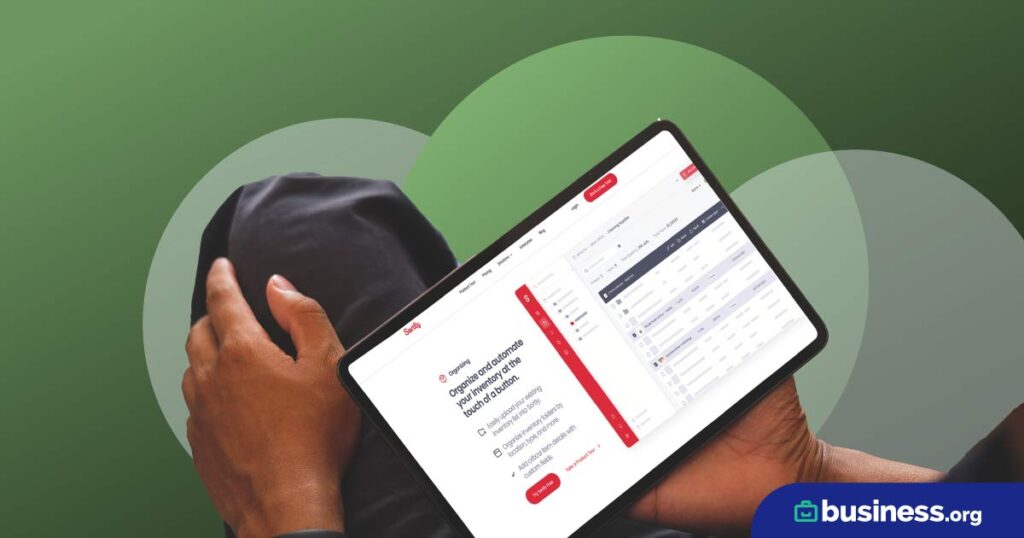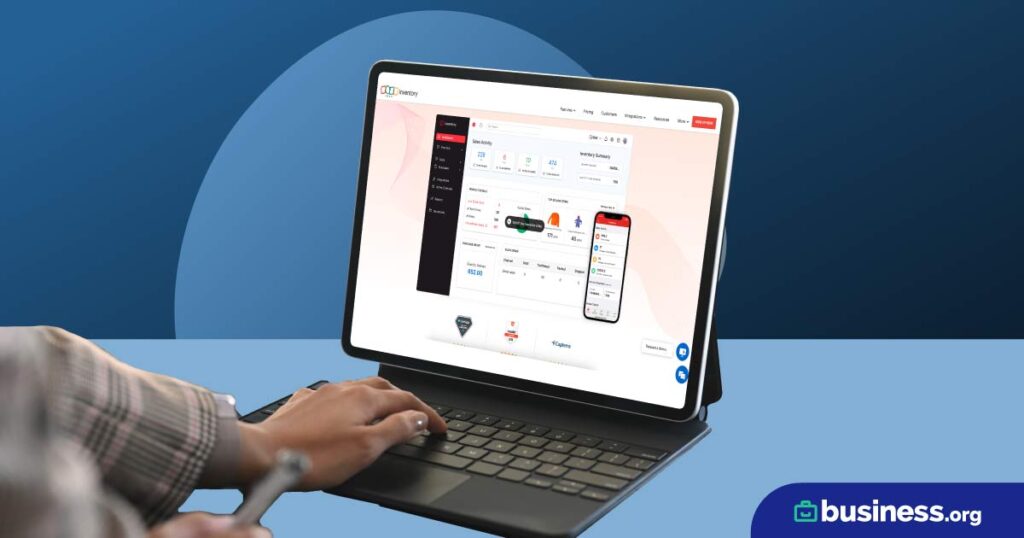We are committed to sharing unbiased reviews. Some of the links on our site are from our partners who compensate us. Read our editorial guidelines and advertising disclosure.
5 Secrets To Prepare Your Small Business for Black Friday and Cyber Monday
As autumn kicks into high gear, small business owners are gearing up for Black Friday and Cyber Monday. But with so much emphasis on discounts, it’s not always clear how to make this annual tradition a profitable one.
That’s why Business.org spoke to 135 small business owners and marketing professionals who dished out secrets to make this retail frenzy a smashing success.
Let’s break down the most crucial strategies to keep your business in the black.
By signing up I agree to the Terms of Use and Privacy Policy.
Start early
This may seem obvious, but we’re talking really early here. You don’t have to emulate the grocery stores that awkwardly sell Halloween candy in April. But according to Gregory Yong, chief experience officer at Convincely, it’s best to strike at the earliest inkling of a seasonal shift in customers’ attention and interests.
"Shoppers tend to start looking for gifts as early as October, so this is when you should start spreading the word and putting your offer out to your customers," Yong told Business.org. "You need to make them aware of your deals and discounts ahead of time. If you leave it too late, they might shop elsewhere instead."
Among the professionals Business.org spoke to, a popular suggestion is to offer a marathon of deals and surprises leading up to Black Friday and Cyber Monday. This could involve a weekly giveaway in exchange for a customer’s email address or social media following, which also helps build an organic marketing list. And to limit lost profit, you could reserve the best discounts exclusively for the most loyal or valuable clients.
Use novelty and creative marketing
The American Psychological Association (APA) defines novelty as “the quality of being new and unusual.” The pursuit of something fresh is a powerful psychological force that’s hardwired in the human brain, starting in infancy.2 As a result, small-business owners should listen up: the lifelong appetite for novelty could explain why customers flock to your competitors even though they’re happy with your products and services.
So, how do small businesses effectively excite customers weeks before Black Friday and Cyber Monday? One trick is to leverage novelty, which the human brain is hardwired to crave.1
You’re probably already familiar with this concept. After all, if you’ve ever gone bananas to receive a curated subscription box, like those from BirchBox, Winc, and others, then you’ve succumbed to the quest for novelty.
Since novelty is such a powerful factor in consumer behavior, try dazzling people with mystery, intrigue, and surprises. This can involve timed coupon deals, new products, and unexpected freebies, among other creative tactics.
Instances of novelty
One popular ecommerce example is Amazon’s Lightning Deals, which discounts an ever-changing array of products at timed intervals. Similarly, brick-and-mortar stores could offer giveaways promoted locally via social media advertising, to name one idea. Service providers, such as plumbers, could delight a random customer with a small prize for Black Friday, delivered straight to their door à la Publisher’s Clearing House.
Ultimately, no matter where your Black Friday marketing takes you, consider adding simple yet highly effective elements of surprise and excitement. For starters, Yong has one idea in mind.
“[Internet-based] countdown timers are something of a novelty. They hold an air of mystery and people are naturally interested in what you're counting down to,” Yong explained to Business.org.
“The best part about this technique is just how simple it is. You don't have to use long, verbose messaging to make this technique work. Simply by including a countdown timer in your communications, like targeted emails and Instagram Stories, you'll draw your users' attention and get the word out the easy way.”
Stress-test your infrastructure
Once you’ve stirred up excitement for your business, make sure you can handle a potential rush of customers.
For ecommerce stores, this means upgrading your web hosting and nit-picking every nuance of your online checkout process. You’ll also want to nail down a breathtaking mobile experience since 39% of online shoppers during November and December 2020 were smartphone-based.3
“Mobile makes up 52% of internet traffic [for some brands] as desktop use is declining. Further research shows that 91% of consumers will leave a mobile app or site if it doesn’t satisfy their needs for a comfortable experience,” says Danielle Pederson, head of marketing at ecommerce design startup Famous. “It is essential for brands to prioritize the mobile and social commerce experience by adapting their digital shopping journey accordingly.”
Optimizing in-person shopping
But what about brick-and-mortar business? Staffing is perhaps the most critical infrastructure component. And when it comes to workers, time is of the essence.
“Waiting to employ is a terrible idea since you want every member of your team completely trained and ready to go when it comes to Black Friday preparations,” says Dean Scaduto, co-founder of the home remodeling firm Kitchen Infinity.
Also, since hiring is an expensive undertaking, Scaduto suggests business owners “choose the finest employees who will stick with you throughout the holiday season.”
Indeed, this is a better strategy than hiring ultra short-term workers since the extra longevity helps slash turnover costs. In fact, once the holidays pass, we’d recommend implementing an effective employee development strategy to morph your top performing seasonal staffers into permanent, year-round employees.
Mitigate potential losses
The economics behind Black Friday and Cyber Monday are touchy subjects. Small businesses with limited resources are likely to take a hit of red ink in order to appease customer appetites for deals. Conversely, loss leaders with deep pockets can write off the shopping frenzy as little more than a blip on the radar.
So, how do small businesses stay afloat while pumping out juicy deals? The answer involves highly selective, targeted discounts and a mindset that Black Friday and Cyber Monday are calculated investments. Simply put, it’s a matter of absorbing one-time losses in the hopes of boosting profits down the road.
“Black Friday and Cyber Monday are the perfect time to retarget all the customers that never converted throughout the year,” says Jonas Rasmussen, owner of the OwlRatings shopping guide website.
“Let [customers] know that whatever they were interested in will be featured in the annual mega sale,” Rasmussen explained to Business.org. “Be sure to throw in some enticing info that might reverse whatever it is that made them leave your shop. For example, on top of a discount, promise faster checkout, free shipping, home delivery, mobile shopping, and so on.”
The illusion of discounts galore
But now that you’ve attracted a potential shopper, how do you mitigate losses while dishing out eye-popping discounts? By leveraging clever marketing to create a broader appearance of deals gone wild.
“Choose one item and offer it at an unbelievable rate. This might include promoting an item at the purchase price or lower considering that it will attract customers who will purchase other offers in your store,” Rasmussen explained to Business.org.
“The point is to capture [customers’] attention first, then trust the offers inside to do the convincing magic and lead to more purchases than just the crazily-priced item. In short, use one item to create the perception that everything you are offering will be jaw-dropping.”
Nail down logistics and product sourcing strategies
Due to a surge in consumer demand, Black Friday and Cyber Monday turn ordinary logistics into a whole new animal. This is compounded due to COVID-19 pandemic-induced shipping delays, which have spawned freight shipping challenges worldwide.
As a result, business owners should stockpile inventory far in advance to avoid selling out. This is especially crucial for best-selling products, so consider analyzing historical purchase data to hone in on these top-performing items.
Keep in mind that suppliers are prone to running short-staffed and underprepared for surging demand, as well. Preventing this pickle is where your historical sales data can come in handy.
"If you work with a third-party logistics provider (3PL) or shipping partner, send them projected order volume as well as any sales you're incorporating into your marketing strategy so they can staff accordingly and get orders out the same day," says Jennifer Wyne, director of marketing at logistics firm One World Direct.
We similarly recommend this data-sharing initiative, especially during challenging global circumstances.
“Since the pandemic began, carriers have become inundated, and delivery times are sometimes slower than usual,” Wyne explained to Business.org. “Set those expectations with your customers by sending email blasts and including it in email follow-ups after they place an order. Try to get customers to order early with the hope they won't expect any shipping delays.”
Need extra working capital to make Black Friday and Cyber Monday a success?
The takeaway
Black Friday and Cyber Monday are certainly intimidating times for small businesses. Too few deals could turn away customers, while an excessive amount of coupons might sink an otherwise profitable year. To tackle retail’s most frantic time of the year, ensure your checkout process is stress-tested, your workforce is at full staff.
Also, launch clever, highly novel marketing campaigns weeks in advance. And finally, view the holiday weekend as an investment that might result in a loss but could return stronger profits and more customers moving forward.
Want some ideas for your HR software pick? Check out our favorite human resource software for small businesses.
Small business Black Friday and Cyber Monday FAQ
Yes, small businesses participate in Black Friday and Cyber Monday. In fact, Business.org recommends preparing weeks in advance for this extra special post-Thanksgiving weekend. Overlooking these two important days is a serious mistake and opportunity cost for small businesses in the United States.
Keep in mind there is also Small Business Saturday. This falls the day after Black Friday, and shoppers are more likely to visit tiny, often locally-owned entities.
Still, Business.org recommends planning for the trifecta: Black Friday, Small Business Saturday, and Cyber Monday. That way, you can maximize your sales and scoop up as many new and returning customers as possible.
Black Friday and Cyber Monday are better for revenue and marketing, but they often aren’t especially profitable. That’s because businesses frequently use these two days as opportunities to grow their customer base, rather than rake in a handsome profit.
This rush for market share is accomplished via alluring, irresistible discounts (and reduced profit) combined with warmed-up consumer purchasing intentions. Simply put, people are in buying mode during these two days—and they’ll flock to deals like moths to a lamp.
Since the profits of a larger customer base can take months to appear, you’ll need to view Black Friday and Cyber Monday as a medium-term investment. Make customers happy now, and they’ll likely return in December and beyond.
Disclaimer
At Business.org, our research is meant to offer general product and service recommendations. We don't guarantee that our suggestions will work best for each individual or business, so consider your unique needs when choosing products and services.
Sources:
- Skavronskaya, Liubov; Moyle, Brent; Scott, Noel. "The Experience of Novelty and the Novelty of Experience." February 26, 2020. Accessed October 13, 2022.
- Mather, Emily. "Novelty, attention, and challenges for developmental psychology." August 1, 2013. Accessed October 13, 2022.
- Adobe. “Adobe Digital Insights 2020 Holiday Predictions.” Accessed October 13, 2022.




